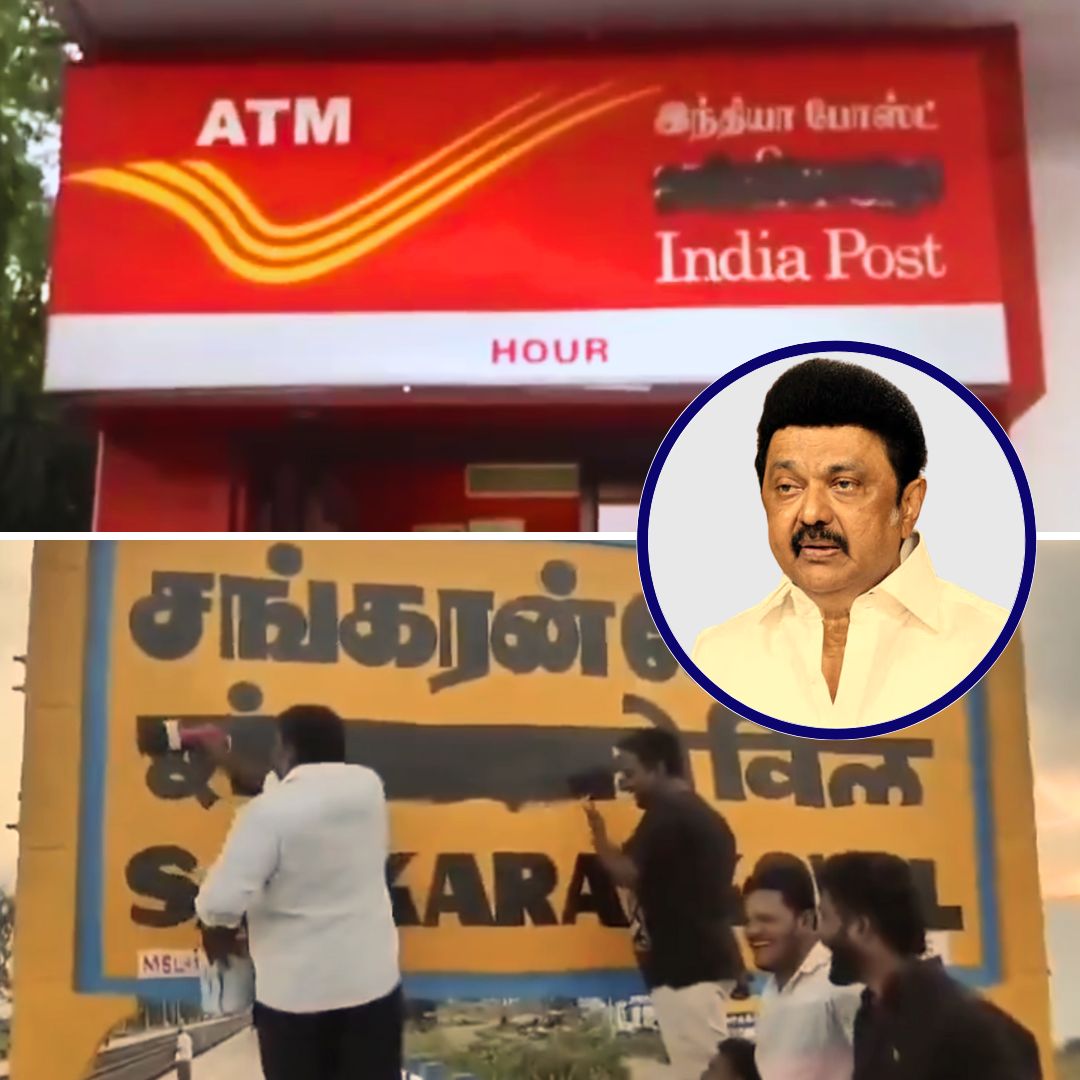In Chennai, DMK cadres have blackened Hindi signboards as part of a protest against the Central government’s alleged attempt to impose Hindi on Tamil Nadu. The state follows a dual-language policy emphasizing Tamil and English. Protesters raised slogans accusing the Centre of linguistic imposition, a contentious issue that has sparked tensions between the state and the federal government. The protests are part of a broader movement against the National Education Policy’s three-language formula, which many in Tamil Nadu see as a threat to their linguistic identity.
Coimbatore, Tamil Nadu: The DMK protested the three-language policy by destroying Hindi letters on the Pollachi railway station nameboard. Led by Thendral Selvaraj, the act caused unrest in the area, with railway police unsure of how to respond. The protest continues pic.twitter.com/AVemBbe20s
— IANS (@ians_india) February 23, 2025
The Protest Unfolds
The protests in Chennai reflect a deep-seated concern among Tamils about the potential erosion of their cultural and linguistic heritage. DMK leaders have been vocal about their opposition to Hindi imposition, citing the Official Languages Act 1963 and the Official Language Rules 1976, which do not designate Hindi as a national language but rather as one of the official languages alongside English.
Protesters have used creative methods, such as blackening Hindi signboards, to express their dissent. While the Central government has not officially commented on these specific protests, the DMK has emphasized that the issue is not just about language but about dominance and cultural identity. For instance, DMK leader and Tamil Nadu Chief Minister M.K. Stalin has reiterated the state’s commitment to preserving Tamil as the primary language of administration and education.
Thanjavur, Tamil Nadu: Students in Thanjavur protested against the three-language policy, opposing Hindi and Sanskrit imposition. The peaceful protest, led by DMK, MDMK, and SFI, saw over 100 participants under police security pic.twitter.com/evSTOc2IMX
— IANS (@ians_india) February 25, 2025
Background and Context
Tamil Nadu has a long history of resistance to Hindi imposition, dating back to the 1960s when anti-Hindi agitations were widespread. The state’s dual-language policy, focusing on Tamil and English, has been a cornerstone of its educational and administrative systems. The current protests are also linked to the National Education Policy’s three-language formula, which many fear could lead to the marginalization of regional languages.
The DMK and its allies have consistently argued that such policies undermine the linguistic diversity and pluralism that are fundamental to India’s federal structure. Historically, Tamil Nadu has maintained a strong stance against linguistic centralization, with past movements leading to significant changes in national language policies.
#WATCH | Tamil Nadu: Security heightened at Trichy Railway station after some miscreants defaced the Hindi portion of the signboard. pic.twitter.com/2Uc7fcFEwF
— ANI (@ANI) February 24, 2025
The Logical Indian’s Perspective
The Logical Indian advocates for peaceful dialogue and mutual understanding in resolving linguistic and cultural disputes. While the right to linguistic identity is crucial, it is equally important to foster an environment where diverse languages and cultures can coexist harmoniously.
As India navigates these complex issues, we must ask: How can we balance the need to preserve regional languages with the imperative of national integration, ensuring that no community feels marginalized or threatened by linguistic policies? By encouraging open communication and respecting the linguistic rights of all states, we can work towards a more inclusive and harmonious society.
#WATCH | Tamil Nadu: Hindi portions of the signboards at the Post office and BSNL office blackened in Chennai
— ANI (@ANI) February 24, 2025
Row over 3-language policy under NEP (National Education Policy) is going on in Tamil Nadu. pic.twitter.com/Ahta57lYDW












